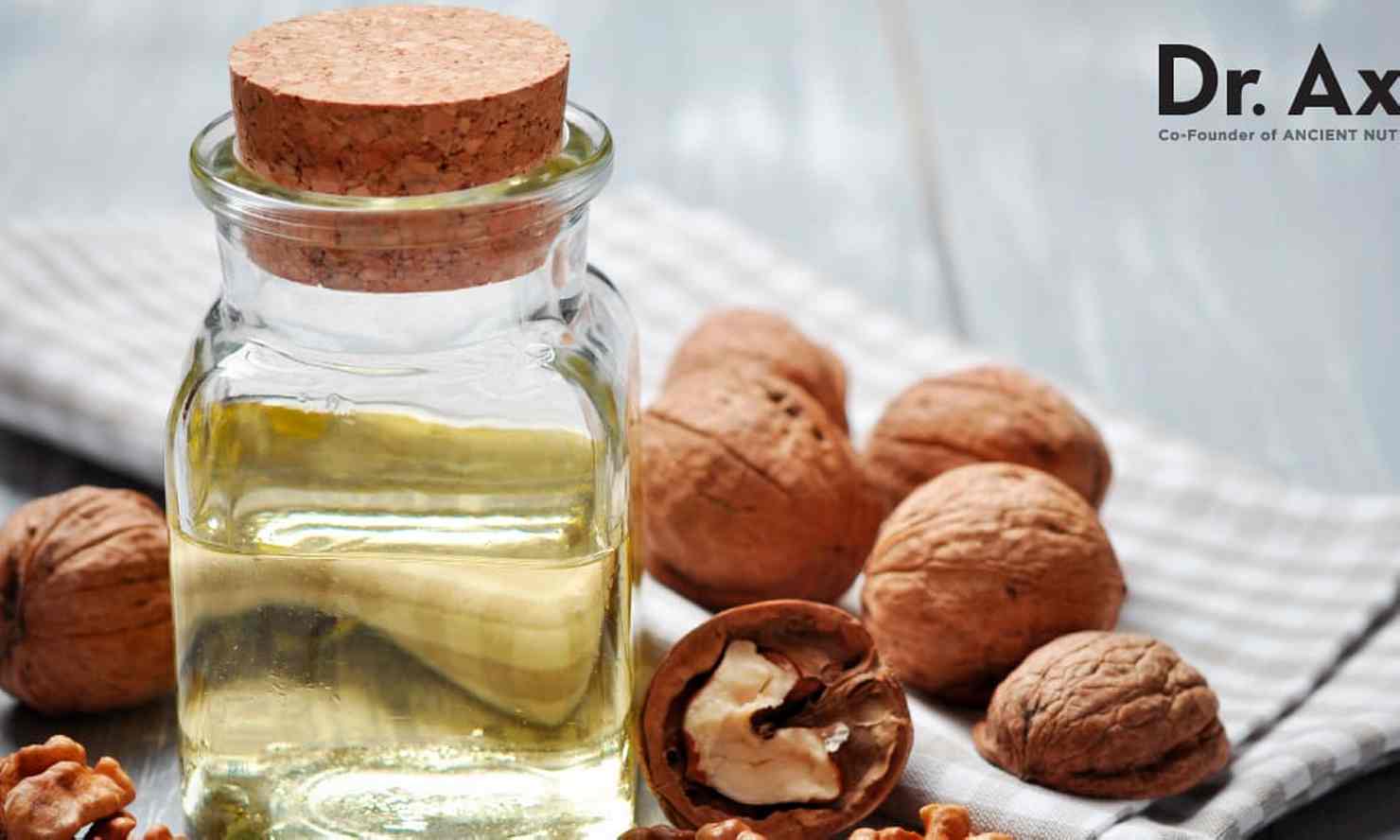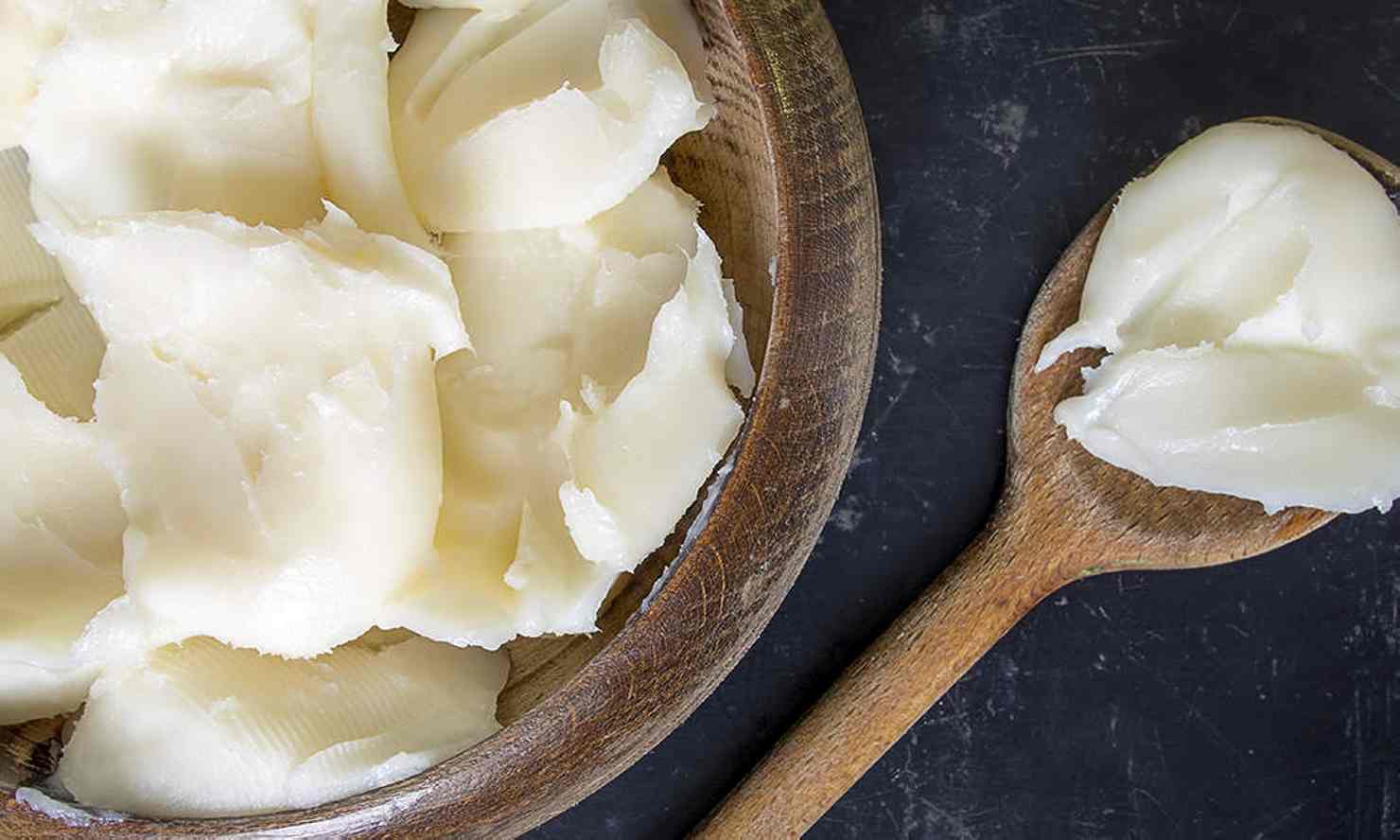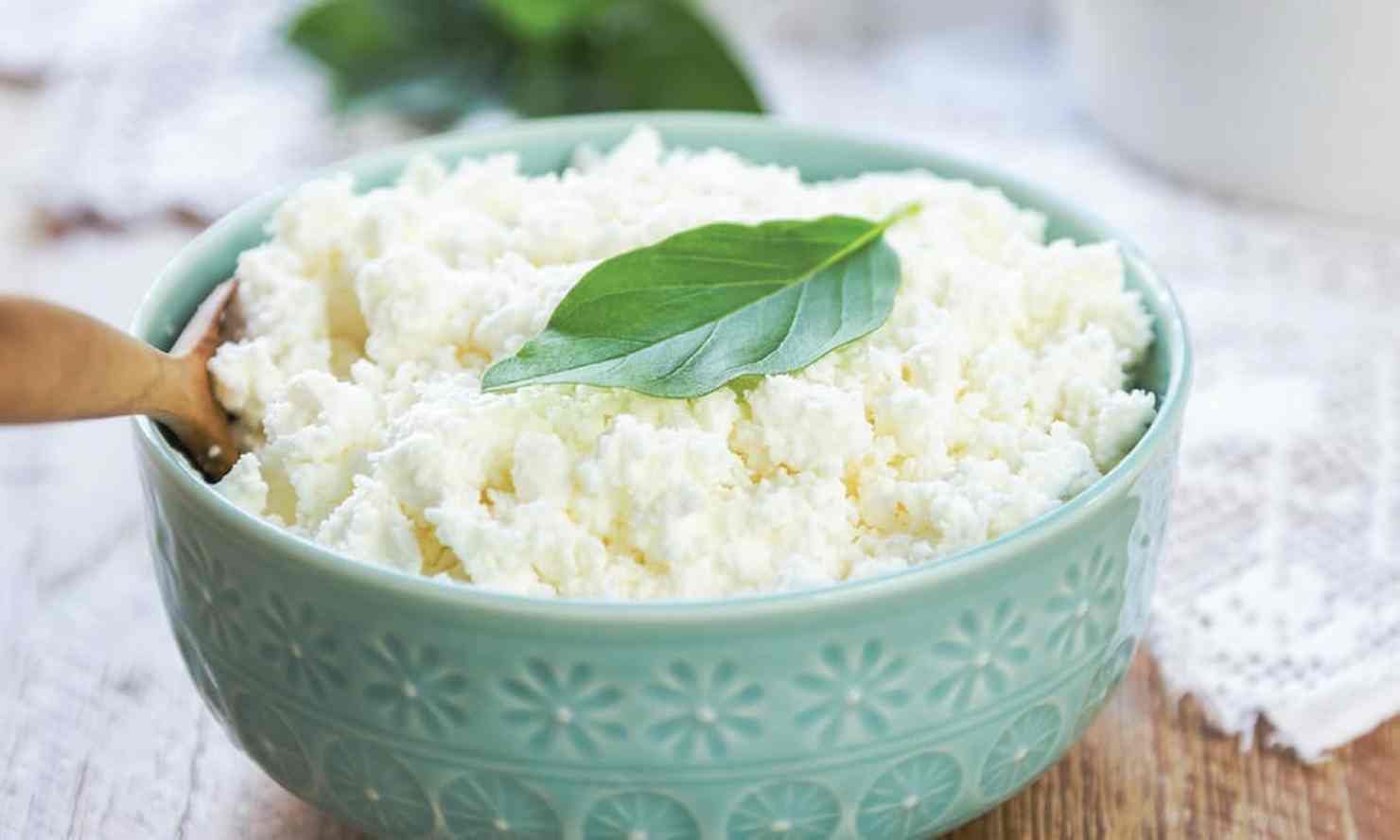
Walnuts, which are full of omega-6 and healthy omega-3 polyunsaturated fats (PUFAs), are not just a nutritious nut to snack on— they’re also used to make a healthy cooking oil. Although walnut oil tends to be a bit pricier than other nut/seed oils, it’s a good addition to your diet in small amounts, especially as a “finishing oil” that’s drizzled over dishes like veggies, rices and pastas.
What is walnut oil good for? Due to its supply of PUFAs, walnut oil benefits include supporting cardiovascular, skin and metabolic health.
Nutrition
Walnuts are edible seeds of the tree species Juglans regia. The walnut tree is native to Europe and Asia and today is widely cultivated for the sweet nuts that it produces.
Walnuts are full of heart-healthy fatty acids as well as other nutrients, such as copper, folate and vitamin E. The fats within walnuts can be extracted to make walnut oil, which is mostly used like a condiment and as a finishing oil, drizzled on foods served at room temperature or those that are slightly warmed.
Walnut oil is light brown in color and has a naturally slightly sweet and nutty taste, so it pairs well with foods like cheese, herbs and mushrooms.Ad
Nutrition Content:
Walnuts are rich in polyunsaturated fatty acids, including omega-3s, which are known to have inflammation-fighting effects. You’ll find high amounts of the omega-3 called alpha-linolenic acid (ALA) within walnut oil, as well as the omega-6 called linoleic acid. Although ALA isn’t as potent as other omega-3s (DHA and EPA, the types found in oily fish), it’s still known to have anti-inflammatory properties.
In addition to containing healthy fats, walnut oil supplies you with antioxidants, including ellagitannins and other polyphenols. (Note that black walnuts are even higher in antioxidants than “common walnuts,” however it’s rare to find walnut oil made from this species of walnuts.)
One tablespoon of walnut oil contains about:
- 120 calories
- 13 grams total fat (9 grams polyunsaturated, 3 grams monounsaturated, and 1 gram saturated fat)
- 0 grams protein, carbs or sugar
- 24 milligrams phytosterols
- 2 micgrograms vitamin K (2% DV)
Is walnut oil better than olive oil?
Walnut oil has a low smoke point, even lower than olive oil. This means that its chemical composition is altered if it’s heated too much, which results in a rancid oil that loses many of its nutrition benefits.
Both olive oil and walnut oil are healthy sources of unsaturated fats, however they have different tastes. Thus, they both are good for their own reasons. Olive oil is also less expensive and more versatile, which is why it’s more popular.
Extra virgin and virgin olive oils shouldn’t be heated to very high temps either, but virgin olive oil can be cooked with more so than walnut oil. Use olive oil when sautéing veggies, pan-frying briefly or making salad dressings. Use walnut oil instead as a garnish/condiment, such as by adding some to dressings and marinades or cooked dishes.
Walnut Oil Benefits
1. Supports Cardiovascular Health
PUFAs found in walnut oil have been shown to help to keep the heart and blood vessels healthy by protecting against chronic inflammation and issues like high blood pressure, high triglycerides and high blood cholesterol. According to one study, the cardioprotective effects of this oil may be due to their polyphenols, tocopherol, ALA, linoleic acid and l-arginine content.
Consuming walnut oil in place of less healthy oils and fats, such as margarine or refined vegetable oils, may be one way to lower your risk for conditions related to chronic inflammation, including heart disease.
2. Provides Polyphenol Antioxidants
Walnuts are rich in polyphenols called ellagitannins, which help fight oxidative stress and free radical damage.
Studies have also demonstrated that walnut oil may have anticancer effects, especially against prostate, breast and colorectal cancers. This is due to compounds called urolithins, which are derived from ellagitannins, that can protect cells against damage.
Additionally, walnut oil has been found to support cognitive health with its supply of antioxidants and anti-inflammatory compounds.
3. Supports Healthy Skin
Walnut oil benefits skin health by supplying fatty acids that help moisturize and protect the outer layers of the skin. By adding this oil to your diet you can help provide your skin with valuable nutrients that fight inflammatory skin disorders, cellular damage and dryness, while assisting in wound healing.
4. Promotes Metabolic Health
Nut and seed-derived oils are thought to offer protection against metabolic syndrome and risk for type 2 diabetes thanks to their ability to counteract oxidative stress and inflammation.
Some research suggests that walnut oil can help lower blood glucose (sugar) levels and hemoglobin A1c levels in people with type 2 diabetes. Taking 15 grams (one tablespoon) of walnut oil daily for three months helped significantly lower fasting blood sugar and hemoglobin A1c levels among diabetics in one 2016 study (although it didn’t change the participants’ blood pressure or body weight).Ad
How to Use And Buy
When buying walnut oil, your best bet is to spend a bit more money on quality oil that is made from entirely dried and cold-pressed or expeller-pressed walnuts. This type is superior to oil infusions made with a combination of walnut oil and cheaper vegetable oils.
Look for 100% pure walnut oil sourced from France (such as Burgundy or Perigord) or California, ideally that’s cold-pressed if you’re willing to spend a bit more. Expeller-pressed oil is a good alternative if cold-pressed isn’t available.
You’ll find this oil in gourmet shops and speciality stores or in large supermarkets where other nut-based oils are found.
A bottle will stay fresh for about six to 12 months once opened. Keep it somewhere cool and dark to extend its shelf life.
How do you use walnut oil?
Because of its low smoke point, don’t use walnut oil as a cooking oil since it can overheat and turn rancid easily. Instead, think of it as a garnish that can be added to cooled or already cooked foods.
Walnut oil has a unique, slightly sweet, nutty taste that is similar to walnuts (no surprise there). It pairs well with:
- pasta
- noodles
- aged cheeses
- vegetables like squash and dark leafy greens
- mushrooms
- herbs
- vinegars
- fish
- fresh breads
Here’s more about some common walnut oil uses:
- Add a bit to salad dressing to give salads a nutty taste.
- Try a drizzle on pasta dishes or pizza.
- Spoon some over wild rice or other grain dishes.
- Add a bit to roasted fish or other lean proteins.
What can you substitute for walnut oil?
If a recipe calls for walnut oil but you don’t have any on hand, try other similar nut oils as a substitute, such as almond oil, hazelnut oil or extra virgin olive oils.
Can you apply walnut oil on your face?
Yes, walnut oil can be applied to skin to help with hydration and fighting free radical damage that can cause signs of aging.
Some people apply walnut oil to their faces to help reduce the appearance of fine lines and wrinkles, however the drawback is that it’s an expensive oil to use a lot of. Other, less expensive facial oils can work similarly to hydrate and protect skin, such as olive oil, almond oil and argan oil.
Risks and Side Effects
The biggest drawback to using walnut oil is that it can be overheated, which changes both the taste and the nutrition content. When cooking with walnut oil, be sure to keep the heat low or avoid cooking with it at all.
Since it’s very high in omega-6 fats and most people already consume plenty of these fats from other foods, use walnut oil sparingly, such as by having about one tablespoon daily.
Don’t consume walnut oil if you’re allergic to walnuts or related nuts, such as almonds, Brazil nuts, cashews, hazelnuts, pecans and pistachios.
Conclusion
- Walnut oil benefits include supplying lots of PUFAs, which are heart-healthy fats. This oil can help promote cardiovascular health and defend against oxidative stress, inflammation, diabetes and high cholesterol.
- For the best quality, opt for unrefined, cold-pressed oil made from 100 percent walnuts. It will have a light brown color and sweet, nutty taste.
- Because it has a low smoke point, use it on cool and room temperature foods. Don’t cook with it at high heats to retain its healthy fats.





